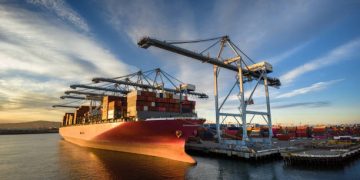TAIPEI, TAIWAN – Southeast Asia’s export-oriented economies are facing heightened uncertainty following a recent executive order from U.S. President Donald Trump, which introduces new tariffs on goods classified as “transshipped.”
Under the order, imports into the United States that U.S. Customs and Border Protection (CBP) deems to have been rerouted through third countries may face a 40 percent tariff. Additional penalties and country-of-origin duties could also apply. The tariff takes effect Thursday, alongside newly announced country-specific tariffs ranging from 10 to 41 percent.
Although the policy targets transshipment practices broadly, industry experts warn that Southeast Asian economies—deeply connected to global supply chains—could face unintended economic consequences.
The impact will depend on how transshipment is defined in practice. According to Puan Yatim, associate professor at Universiti Kebangsaan Malaysia, a narrowly defined policy might only target goods that are minimally altered or relabeled en route to the U.S. “In that case, the impact on ASEAN may be limited,” Yatim noted. “But a broader interpretation, including goods with significant inputs from certain countries, could present serious challenges for economies like Vietnam, Indonesia, Cambodia, and Malaysia.”
For years, manufacturers have expanded operations in Southeast Asia through a diversification strategy known as “China Plus One,” which aims to lower costs and reduce dependency on single-country production hubs. This trend accelerated during the global pandemic, prompting substantial foreign investment inflows into the region. Chinese foreign direct investment into ASEAN countries rose from $7.1 billion in 2020 to $19.3 billion in 2024, while exports from China to the region grew from $385 billion to $587 billion, according to official data and independent research institutions.
This growing interdependence has attracted the attention of U.S. trade authorities, especially in sectors where intermediate goods originate in one country and are completed or assembled in another before being shipped to the U.S.
One notable case involved the solar cell industry, where the U.S. Department of Commerce levied tariffs of up to 3,500 percent on Southeast Asian manufacturers following a multi-year investigation into improper labeling practices.
In response, some Southeast Asian governments have taken steps to increase export transparency. Malaysia, for instance, recently announced it would centralize the issuance of certificates of origin to ensure export compliance. Vietnam has agreed to the new transshipment tariff as part of a broader framework with the U.S., and Indonesian officials have publicly opposed transshipment practices.
Despite these efforts, the new policy could still pose significant compliance challenges for private enterprises. “The biggest concern will be how the U.S. classifies products with components from multiple countries,” said Steve Okun, CEO of APAC Advisors in Singapore. While U.S. trade law typically uses the point of “substantive transformation” to determine a product’s origin, a stricter approach could require companies to audit complex, multi-tier supply chains more thoroughly than ever before.
Such developments may alter long-term trade dynamics. “These measures could potentially redefine global trade,” Okun stated.
Additional tariffs announced by the U.S. include a 10 percent rate for Singapore and around 19–20 percent for Malaysia, Thailand, Cambodia, Vietnam, and Indonesia—compared to a higher proposed rate for other regions. Analysts suggest that this could reduce the competitiveness that some Southeast Asian economies had gained through their integration into diversified supply chains.
Richard Laub, CEO of global procurement firm Dragon Sourcing, said that many firms had set up minimal operations abroad to add limited value before re-exporting goods. “I suspect that those strategies will come to a standstill,” he noted.
A Washington-based trade consultant observed that some global firms are adapting by localizing supply chains, particularly in markets with growing domestic demand. Meanwhile, rising compliance costs and tariffs on materials like foreign-sourced steel have prompted certain manufacturers to relocate operations outside the U.S.
“This may not align with the intended goals of the policy,” the consultant commented.
Nick Marro, principal economist for Asia at the Economist Intelligence Unit, summarized the outlook: “There is a clear move to address transshipment concerns. For companies relying on strategies like China Plus One, a strategic reassessment may now be necessary.”
#SupplyChainNews #TradeCompliance #SoutheastAsiaTrade #USCustomsPolicy #ManufacturingTrends

















